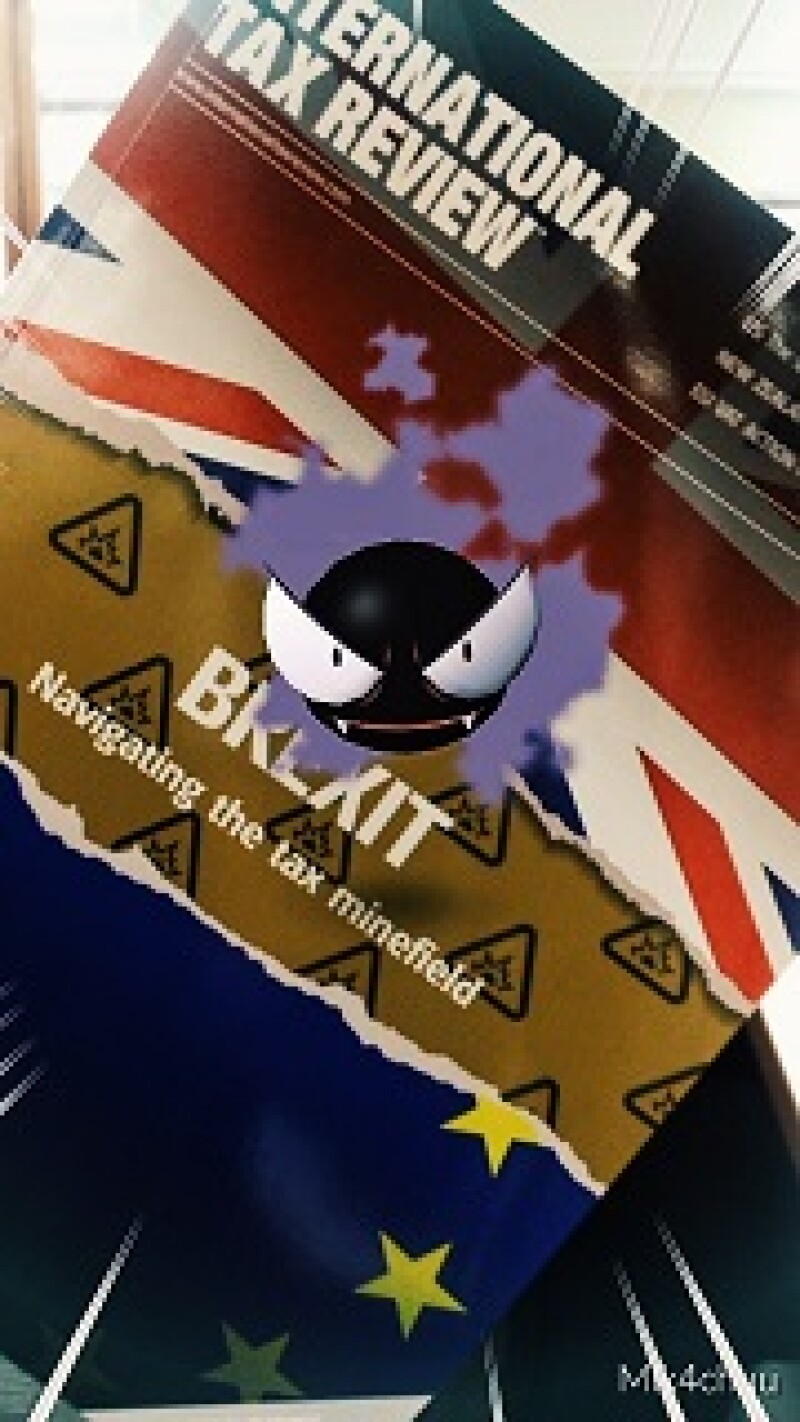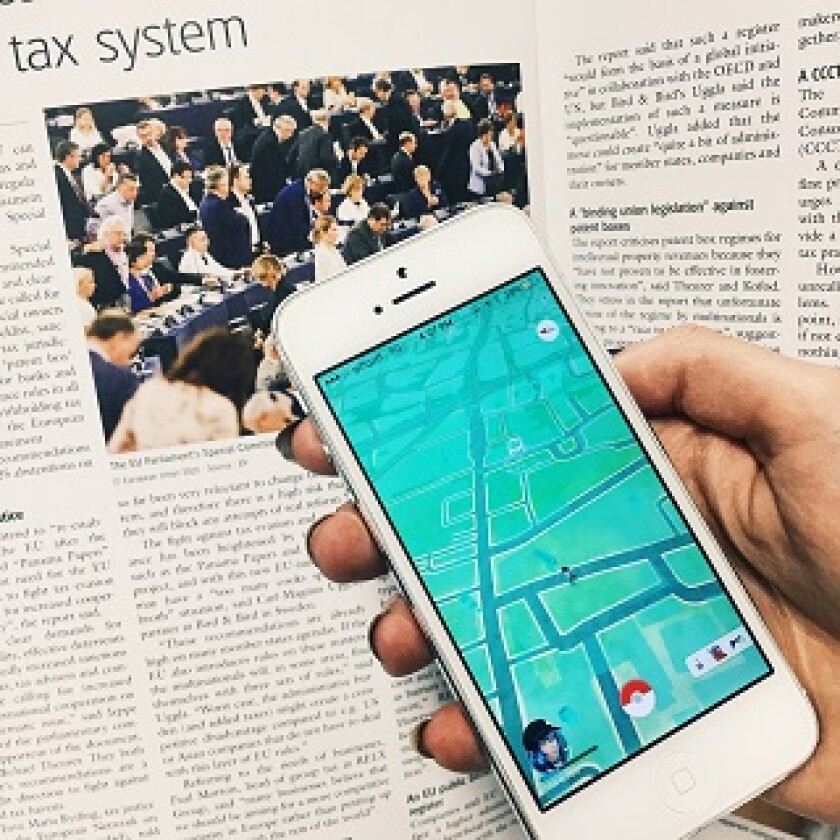International Tax Review compiles a veritable Poké-montage of the best tax insights into the wildly popular app and the tax rules surrounding the growing market. Pokémon GO, the app developed by Niantic Inc., was launched in the UK on July 14 and has surged in popularity worldwide. It brings together the fantasies of the digital Pokémon world with the real environment its users live in.
The app is just one example of how the mobile app market has boomed in recent years, providing businesses with another lucrative route for accessing customers.
Although Pokémon GO is free to download, the game offers in-app purchases of ‘Pokécoins’ that allow players to gain better “Chanseys” to become Pokémon masters. The app has already generated $35 million in revenue from 30 million worldwide downloads and players are spending approximately $1.6 million every day on it. These figures are expected to rise following the game’s release in Japan on July 22.
As expected, governments are looking into these in-app purchases to “catch ‘em all” and boost tax revenues.
The sale of digital goods

If you’re not yet feeling too ‘Drowzee’, Robert Wood, a tax lawyer in San Francisco, examined how Pokémon GO is taxed and has flagged the inconsistent measures applied to the sales of digital goods, in a contributed article to Forbes.
Definitions and terms for the treatment of digital goods and services have been widely argued around the world, with the mobile apps market being no exception.
Although the tax treatment of Pokémon GO differs around the world, the argument of whether a Pokécoin is tangible or intangible property has been raised, or whether it could be determined as a service.
In the UK, electronic data services that are provided free of charge are not taxable. However, where digital services are supplied on a B2C basis, the supplier is responsible for charging the VAT rate applicable on the supply and reverting the levy to the relevant tax authority.
The increase of digital services and e-commerce means new taxation measures in many countries is inevitable. In Pennsylvania, a 6% levy will take effect from August 1 on digital downloads, which is expected to generate $50 million in revenue for fiscal 2016-17.
Governments’ taxation of the sales of digital goods has moved from supplier-based to destination-based taxation. The OECD’s BEPS project, endorsed this principle in Action 1 saying that, "for consumption purposes internationally traded services and intangibles should be taxed according to the rules of the jurisdiction of consumption”.
Downfall of US tax rules on digital sales

The Surly Subgroup, a tax blog by tax academics, featured a post by Adam Thimmesch, an assistant professor at the University of Nebraska-Lincoln College of Law on the tax aspects of Pokémon GO. Thimmesch delved into the tax issues raised by the app’s “freemium business model” and the difficulties the US federal and state governments face in taxing in-app purchases.
On state taxation, Thimmesch pointed out that states are “woefully inconsistent regarding whether and how they’ve extended their sales taxes to include purchases of digital items”. Although some states can tax digital goods and services there is “no physical-world analogy” applicable to “Pokécoins that can be used to purchase ‘limited, nontransferable, non-sublicenseable, revocable license[s]’ to use in-app upgrades”. Once this is resolved, the next question raised is how and where the app will be taxed.
Taxing in-app purchases also raises constitutional issues, Thimmesch said. The US Supreme Court requires that a vendor have a physical presence in a state to collect its sales taxes.
Thimmesch also explored the relationship between tax, privacy and the use of data in today’s economy as being a potential place to adapt a “barter transaction” of digital products in exchange for consumer data.
“The technological developments of recent decades have allowed companies to collect staggering amounts of consumer data by offering ‘free’ access to digital products like search engines and social-media platforms. Scholars in a variety of fields recognise that this practice represents a new type of market exchange, but our tax laws and tax scholars have thus far ignored this aspect of the new economy. That inattention means that transactions in data currently benefit from an implicit exemption from tax,” he said in a working paper.
Tax reliefs supporting industry progress
Figures released this month show that the UK government has given £45.9 million ($60.2 million) in video games tax relief (VGTR) since the incentive was introduced in April 2014.
So far, there have been 135 claims of VGTR, supporting UK expenditure of £417 million on video game development.
“[The] figures show that video games tax relief is a key factor behind our industry’s progress and success. Games tax relief enables the UK video games industry to compete on a more level playing field against our overseas competitors,” said Richard Wilson, CEO at TIGA, the trade association representing the UK’s games industry. “It is also increasing investment and creating jobs in our high technology, high skilled, high export sector,” he told International Tax Review.
Companies can only claim VGTR on games they are developing, which are culturally British, are intended for supply, and where at least 25% of the core expenditure is on goods or services provided from within the European Economic Area.
The chair of TIGA, Jason Kingsley, said that VGTR is even more important following the UK’s vote to leave the European Union.
“In a post-Brexit world it will be important to retain and strengthen video games tax relief in order to attract external investment and to maintain the competitiveness of the sector,” he said. “Brexit means that the UK can reform and improve games tax relief.”











